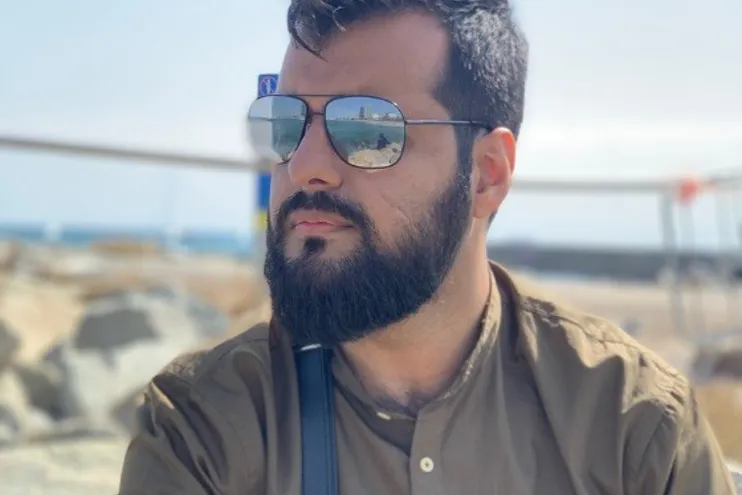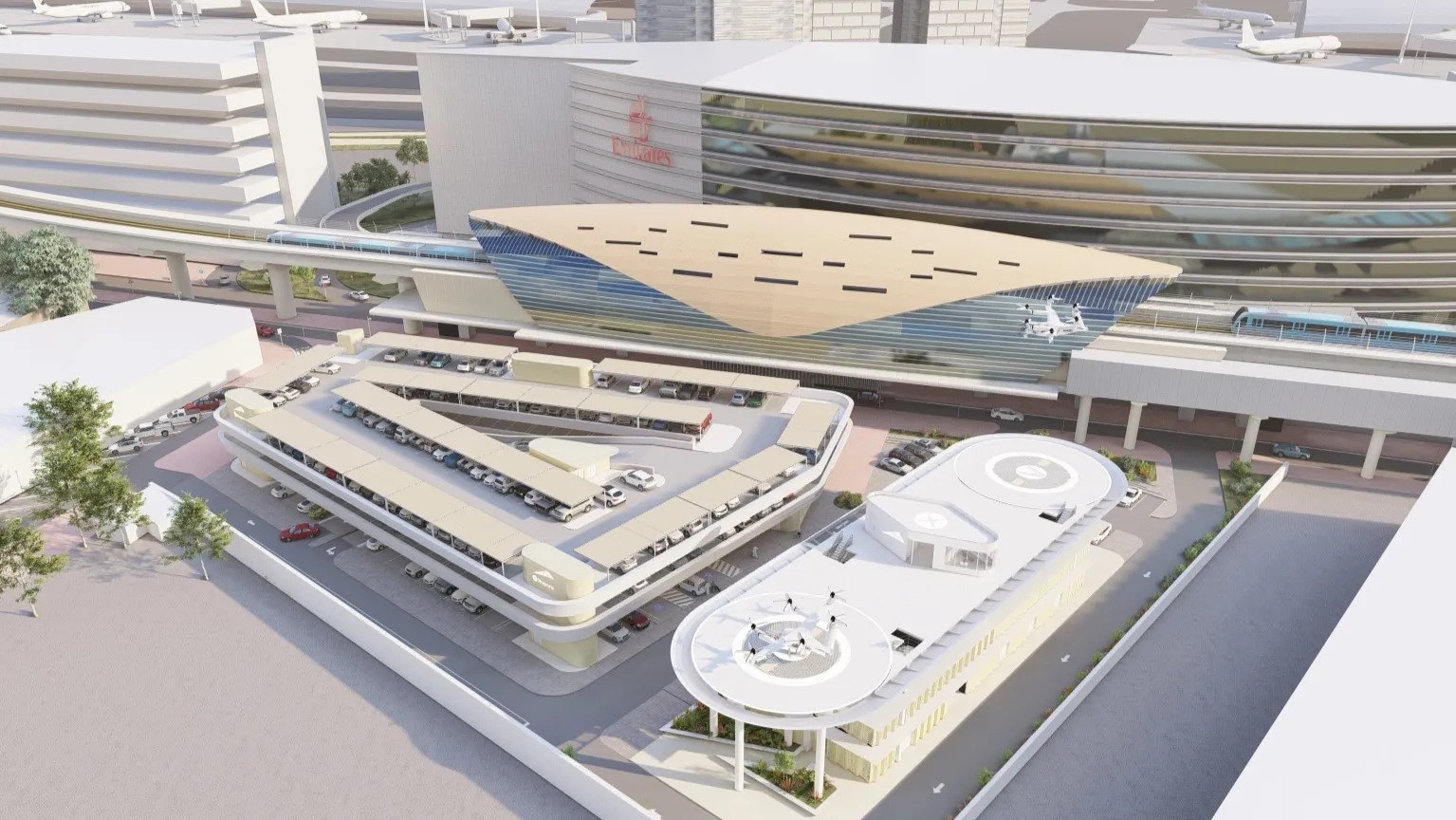Soaring above
How Dubai’s eVTOL vertiports are transforming citywide transportation.

In the bustling city of Dubai, a revolutionary electric air taxi service is set to transform urban transportation. Featuring cutting-edge vertiports, this service aims to reduce congestion, shorten travel times, and provide a sustainable alternative to traditional road and rail transport. By harnessing advancements in electric motors, batteries and aerodynamics, this initiative heralds a new era of urban mobility.
Ali Ilyas, a key engineer on the project, has an impressive background in sustainable transport. After earning a master’s degree in aerospace engineering in 2012, he began his career as a CAD engineer at Brookfield Utilities UK. He then advanced London’s electric vehicle (EV) charging infrastructure at UK Power Networks, contributing to significant projects like Transport for London’s taxi-charging stations and the UK’s first fuel-to- EV station conversion. His expertise led to his qualification as a chartered engineer with the IET.
In 2022, Ali joined Skyport, a leader in vertiport infrastructure for the advanced air mobility (AAM) industry. This role allowed him to apply his power engineering skills to the aviation sector, driving sustainable advancements.
In early 2024, Dubai’s Road and Transport Authority and Joby Aviation sealed a partnership with Skyport to launch passenger air taxi services in Dubai by 2026. This marked the first global partnership between a transport authority, vertiport operator, aircraft manufacturer and regulatory bodies to enable AAM, making Dubai the first city with a commercial, citywide electric air taxi service.
At Skyport, Ali focuses on developing vertiport hubs designed to minimise infrastructure footprints and maximise efficiency, offering a swift and effective solution to urban congestion.
Dubai’s vertiports are uniquely designed to accommodate electric vertical take-off and landing (eVTOL) aircraft. Key features include rapid turnaround times with advanced charging technology and low noise emissions, enabling operations closer to urban centres. Strategically located near major transportation hubs such as Dubai International airport and Emirates metro station, these vertiports enhance connectivity with metros, buses and EV charging facilities. They offer fast and efficient alternatives for high-frequency, high-speed routes, ultimately reducing operating costs and environmental impact.
The development of vertiports and EV charging networks is crucial for creating low-emission, high-efficiency transportation systems.
Overcoming challenges such as grid capacity constraints and high initial investments is essential for scalable global solutions. In the era of smart cities, infrastructure will become more integrated, data-driven and adaptive. Interoperable systems combining energy, mobility and urban planning will be vital to meet dynamic demands while prioritising sustainability and efficiency.
Navigating complex regulatory frameworks has been challenging, but strong stakeholder relationships and clear communication about the long-term benefits have been key to success.
For success on a personal level, Ali advises staying curious, developing a multidisciplinary skill-set and remaining open to emerging technologies. Crucially, maintaining a drive to innovate and implement solutions that balance economic growth with environmental stewardship is essential.
Advanced aerial mobility will redefine urban transport, offering sustainable and efficient solutions for the future. Pioneers including Ali are driving this transformation, proving that innovation and sustainability can go hand in hand.

